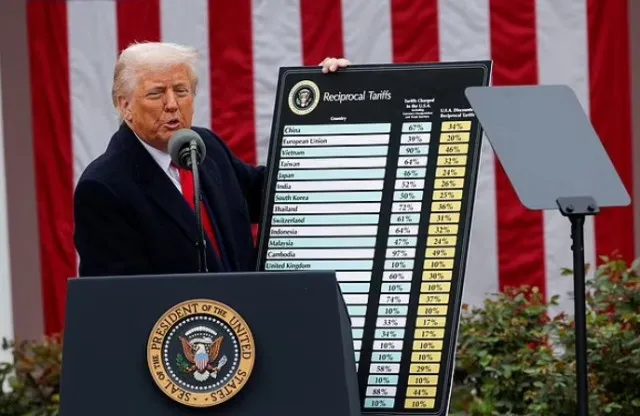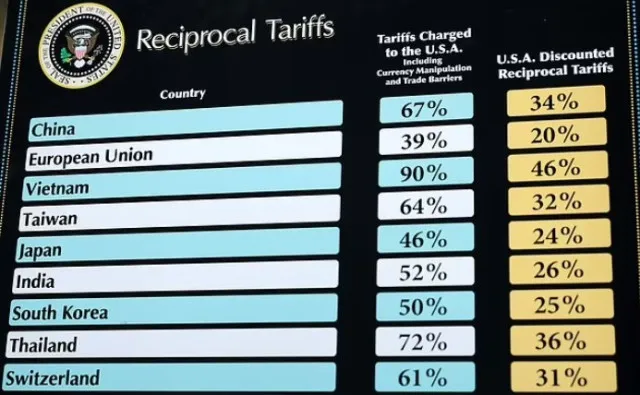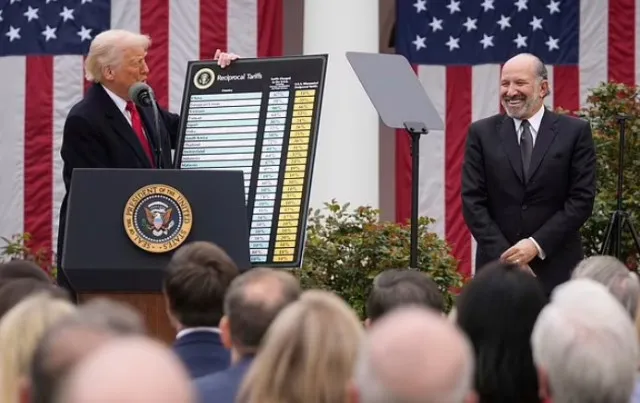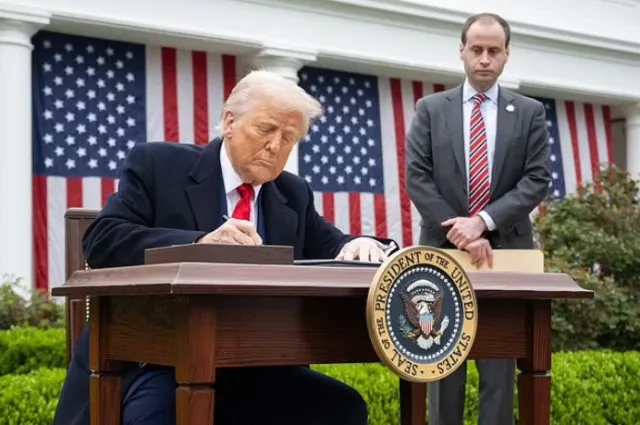Three major countries were noticeably excluded from Trump’s massive tariffs list, with specific reasons behind their omission.
Recently, President Donald Trump announced a new set of tariffs on many countries around the world.
However, three significant nations, including Mexico, Canada, and Russia were noticeably absent from this list.
This decision has raised questions about the reasoning behind it and what it means for trade relations.
Trump announced significant tariffs affecting many countries.
On April 2, 2025, Trump held a press conference at the White House to unveil his sweeping tariffs.
These tariffs were aimed at various countries, including some that are traditional allies of the United States.
The tariffs are intended to protect American industries and address trade imbalances.

Reason three major countries excluded from Trump’s massive tariff list
Exemptions for Mexico and Canada
Among the countries not affected by the tariffs, Mexico and Canada stood out.
Both nations have been part of the United States-Mexico-Canada Agreement (USMCA), which was signed in 2020.
This agreement allows goods that meet its standards to enter the U.S. without additional tariffs.
In his announcement, Trump confirmed that goods from Mexico and Canada complying with the USMCA would not face tariffs.
However, products that did not meet these standards, particularly in the energy sector, would incur a 10 percent tariff.
This arrangement reflects the ongoing trade relationship established through the USMCA.

Russia’s absence explained
Russia was also left off the tariff list, but for different reasons. The U.S. has imposed economic sanctions on Russia due to its actions in Ukraine.
As a result, the volume of trade between the two countries is minimal.
Treasury Secretary Scott Bessent explained that since the U.S. does not engage in substantial trade with Russia or Belarus, they were not included in the tariff proposals.
Impact of Tariffs on Other Countries
While Mexico, Canada, and Russia were spared, many other countries faced significant tariffs.
For instance, China was set to receive a 54 percent tariff on goods.
This move is part of a broader strategy to address trade practices that Trump views as unfair.
Other nations, including Vietnam and Taiwan, also faced high tariffs, indicating a shift in U.S. trade policy.
The immediate economic reaction to Trump’s tariff announcement was noticeable.

Stock markets experienced a sharp decline, with major indexes like the Dow Jones Industrial Average dropping over 1,000 points.
Investors expressed concern about the potential for trade wars and the broader implications for the global economy.
In light of the new tariffs, Treasury Secretary Scott Bessent urged countries not to retaliate against the U.S.
‘My advice to every now is do not retaliate. Sit back. Take it in. Let’s see how it goes. Because, if you retaliate, there will be escalation. If you don’t retaliate, this is the high water mark,’ he said.
Bessent emphasized that retaliation could lead to further escalation, which would not benefit any nation involved.
President Trump speaks out about American trade

During his announcement, Trump portrayed the tariffs as a necessary step for America’s economic liberation.
He stated, “My fellow Americans, this is liberation day; we’ve been waiting for a long time.”
His comments reflect his ongoing commitment to reshaping U.S. trade policies to favor American workers and industries.